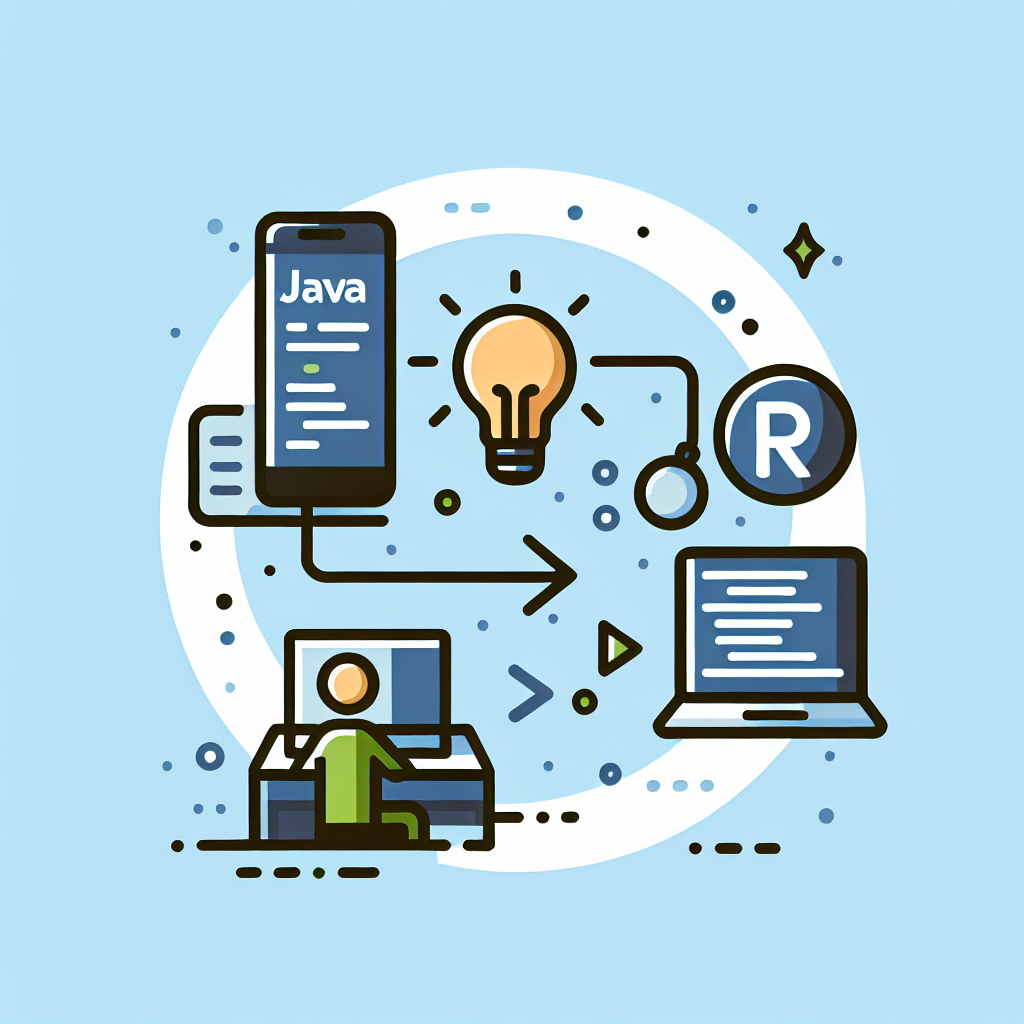Convert Java to R Code Effortlessly | Java2R Tool
Easily convert Java code to R with our powerful tool. Simplify your workflow, enhance compatibility, and streamline your data analysis projects now!
Source Code
Converted Code
Output will appear here...
Java to R is a powerful conversion tool designed to seamlessly translate Java code into R, enhancing cross-language functionality and boosting computational efficiency. Perfect for data scientists and developers, it streamlines the integration of robust Java applications with Rs advanced statistical capabilities, ensuring smoother workflows and improved data analysis. Experience effortless code migration and improved project versatility with this essential tool for programming professionals.

Java to R Conversion Tool Link to this section #
Seamlessly transition your Java code to R with our Java to R conversion tool, designed to cater to data scientists and programmers who work across both languages. This tool allows you to effortlessly transform Java logic into R scripts, optimizing for statistical analysis and data visualization.
Key Features Link to this section #
- Automatic Syntax Translation: Converts Java syntax to R, ensuring compatibility with R's vectorized operations and functional programming paradigms.
- Data Structure Mapping: Translates Java's arrays and collections to R data structures like vectors, lists, and data frames.
- Function Conversion: Transforms Java methods into R functions, maintaining functional equivalence.
How It Works Link to this section #
- Input Java Code: Paste your Java code into the tool.
- Convert: The tool automatically parses and converts the code into R.
- Download or Copy: Export the converted R script or copy it directly to your clipboard.
Example Link to this section #
Java Code Link to this section #
public class HelloWorld {
public static void main(String[] args) {
System.out.println("Hello, World!");
}
}
Converted R Code Link to this section #
hello_world <- function() {
print("Hello, World!")
}
hello_world()
Benefits Link to this section #
- Efficiency: Save time by automating the translation process.
- Accuracy: Minimize errors in manual conversion, ensuring precise results.
- Versatility: Ideal for projects requiring integration of Java-based algorithms with R's statistical tools.
Related Resources Link to this section #
- R Programming Language - Learn more about R's capabilities for data analysis.
- Java Documentation - Explore Java's robust programming features.
Leverage the power of both Java and R by using this tool to seamlessly integrate your workflow, enhancing productivity and expanding your analytical capabilities.
Frequently Asked Questions
How can I call R functions from Java?
You can call R functions from Java using the Rserve library, which allows Java applications to connect to R sessions and execute R scripts. First, ensure Rserve is installed and running in R, then use the Rserve client in Java to establish a connection and execute R commands.
What are the advantages of integrating Java with R?
Integrating Java with R combines the strengths of both languages: Java's robust object-oriented features and cross-platform capabilities with R's powerful statistical and data analysis tools. This integration enables developers to build scalable applications with advanced analytics, leveraging Java for application deployment and R for data processing and visualization.
What tools are available for Java to R integration?
There are several tools available for integrating Java with R, including Rserve, which provides a TCP/IP server for R, and rJava, which allows embedding R in Java applications. Additionally, JRI (Java/R Interface) can be used to run R scripts from Java code by embedding R within a Java application.